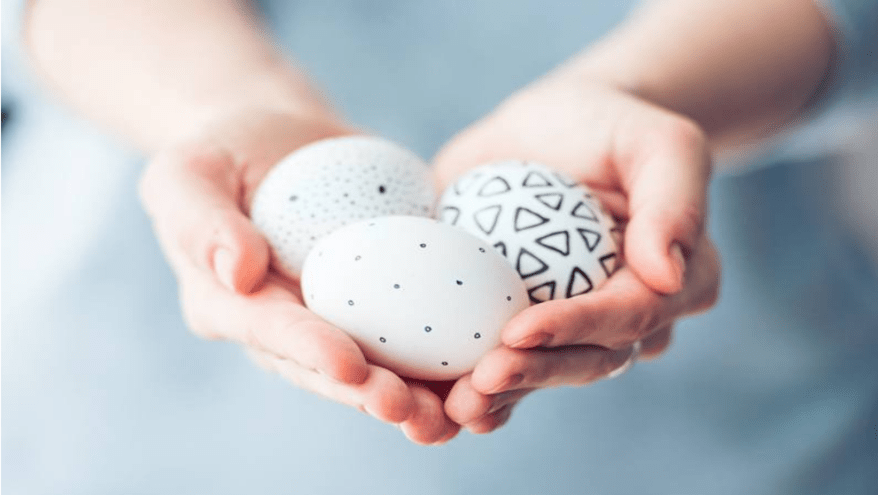
Egg donation is a generous act that can offer hope to individuals struggling with infertility. However, it’s essential to carefully weigh the pros and cons before making this decision. We’ll explore the various factors to consider when contemplating egg donation.
Understanding Egg Donation
Egg donation involves a process where a woman, known as the donor, provides her eggs to be used by another individual or couple who are unable to conceive using their own eggs. This process typically involves medical screening, hormone injections to stimulate egg production, egg retrieval, and subsequent fertilization.
Pros of Egg Donation
Helping Others: One of the most significant benefits of egg donation is the opportunity to help individuals or couples achieve their dream of having a child. Your donation can make a profound difference in someone’s life, bringing joy and fulfillment to those struggling with infertility.
Financial Compensation: Egg donation often comes with financial compensation, which can help offset the costs associated with the donation process. This compensation can vary depending on factors such as location, clinic policies, and the donor’s characteristics.
Medical Screening and Care: Egg donors undergo thorough medical screening to ensure their suitability for donation. This process includes physical exams, genetic testing, and psychological evaluations. Additionally, donors receive medical care and monitoring throughout the donation process, ensuring their health and well-being are prioritized.
Personal Fulfillment: Many egg donors find fulfillment in knowing that they have made a positive impact on someone else’s life. The altruistic act of egg donation can be personally rewarding and can foster a sense of pride and accomplishment.
Educational Opportunities: Egg donation allows donors to learn more about their own reproductive health and fertility. Through the screening process and consultations with medical professionals, donors gain valuable insights into their reproductive system and overall well-being.
Cons of Egg Donation
Health Risks: While egg donation is generally considered safe, it does involve medical procedures and hormone injections, which carry inherent risks. These risks can include ovarian hyperstimulation syndrome (OHSS), infection, bleeding, and reactions to anesthesia.
Emotional Challenges: Egg donation can be emotionally challenging for some donors, particularly if they develop a strong attachment to the idea of the child conceived using their eggs. Donors may also experience feelings of loss or regret, especially if they later encounter difficulties conceiving their own children.
Impact on Fertility: The egg donation process requires the use of fertility medications to stimulate egg production, which can temporarily impact a donor’s fertility. While most donors return to their normal fertility levels after a few months, there is a small risk of long-term effects on reproductive health.
Legal and Ethical Considerations: Egg donation involves complex legal and ethical considerations, including issues surrounding parental rights, consent, and compensation. It’s essential for donors to fully understand their rights and responsibilities before proceeding with the donation process.
Time Commitment: Egg donation requires a significant time commitment, including medical appointments, screenings, and the egg retrieval procedure itself. Donors must be prepared to dedicate several weeks to the donation process, which can disrupt their daily routine and activities.
Navigating the Decision
While the decision to become an egg donor is deeply personal, it’s crucial to approach it with careful consideration and thorough understanding. Here are some additional points to consider:
Support Systems: Egg donation can be a significant undertaking, both physically and emotionally. It’s important to have a strong support system in place, including friends, family, or support groups, who can provide encouragement and guidance throughout the process.
Long-Term Implications: Consider the potential long-term implications of egg donation, both for yourself and any future children you may have. Some donors may wonder about the genetic connection to any children conceived using their eggs and how they will navigate those relationships in the future.
Alternative Options: Explore alternative options for helping others or achieving your own family-building goals. Egg donation is just one of many ways to support individuals or couples struggling with infertility. You may also consider options such as surrogacy, adoption, or participating in fertility research studies.
Legal Protections: Familiarize yourself with the legal protections and regulations surrounding egg donation in your country or region. It’s essential to understand your rights and responsibilities as a donor, as well as any potential legal implications or obligations that may arise from the donation process.
Ethical Considerations: Reflect on the ethical considerations involved in egg donation, including issues of autonomy, consent, and the commodification of reproductive materials. Take the time to explore your own values and beliefs surrounding reproduction and assisted reproductive technologies.
Consultation with Professionals: Seek guidance from medical professionals, fertility specialists, and mental health professionals who can provide expert advice and support. These professionals can offer valuable insights into the medical, psychological, and ethical aspects of egg donation, helping you make an informed decision that aligns with your individual circumstances and values.
Frequently Asked Questions (FAQs)
Q: What is the age limit for egg donation?
A: Egg donation clinics typically accept donors between the ages of 21 and 35, although specific age requirements may vary.
Q: How long does the egg donation process take?
A: The egg donation process typically spans several weeks, including medical screening, ovarian stimulation, egg retrieval, and recovery.
Q: Can I donate eggs if I have children of my own?
A: Yes, having children of your own does not necessarily disqualify you from becoming an egg donor, but each clinic may have its own eligibility criteria.
Q: Is egg donation anonymous?
A: Egg donation can be anonymous or open, depending on the preferences of the donor and recipient. Many clinics offer both options.
Q: Will egg donation affect my future fertility?
A: While egg donation carries some risks, such as potential impacts on future fertility, research on the long-term effects is ongoing. It’s essential to discuss any concerns with medical professionals.
Conclusion
Egg donation can be a life-changing experience for both donors and recipients, offering hope and the possibility of starting or expanding a family. However, it’s essential to carefully consider the pros and cons before deciding whether egg donation is right for you. By weighing the potential risks and benefits and seeking guidance from medical professionals, you can make an informed decision that aligns with your values and goals.
Should you have any questions or concerns, please do not hesitate to contact us at 212-661-7177 or info@eggdonors4all.com.

Dr. Pooja Patel
Dr. Pooja Patel is a Chief Surrogacy Coordinator at Surrogacy4all. She has 10 years of experience in Anesthesiology and critical care medicine.
She received her medical degree from Seth GS Medical College and K.E.M Hospital in India. She then completed an internship. She finished her Anesthesia residency at Grant Govt Medical College and JJ Group of Hospitals in India.







